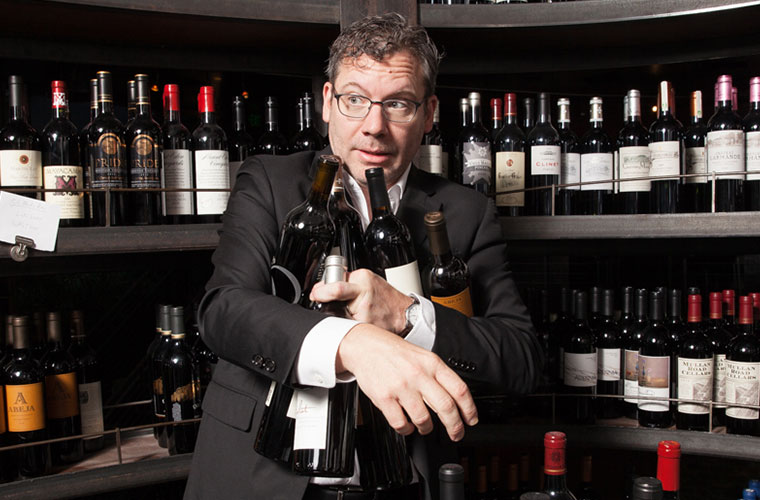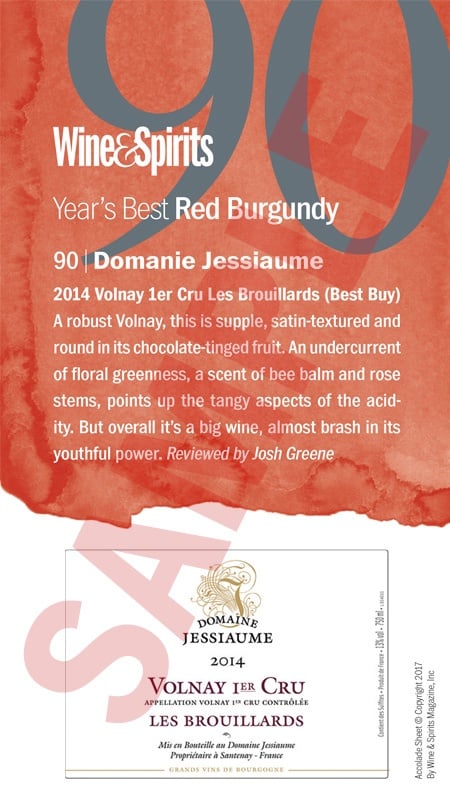Chris Horn, director of liquids for the Heavy Restaurant Group, has been in the industry since the ‘90s. He brings the perspective of having seen the industry thrown for a loop by the Dot-Com Bubble and the Great Recession to discussing the challenges of pandemic dining and the silver linings that have emerged.


How has this past year been for you?
Challenging would be an understatement. We thought 2021 was a mess. 2022 has its own set of challenges. We have had a really hard time attracting talent. You know, I went from having a team of 12 people that could take my job any day down to…I have two sommeliers between the two restaurants now and that’s… it’s bonkers. I think that when the pandemic hit, I really was super concerned about all my staff, but they all found other things to do. Some moved to Florida, some moved to Michigan, some got jobs waiting tables somewhere else, some left the industry altogether, some went back to school.
On New Opportunities and Revising the Wine List
There is a silver lining. You know, I look at all our locations and, and everybody’s new. I think I have four employees downtown who were on the staff before the pandemic and stayed. It’s an opportunity to readdress how we do things, because you don’t have that legacy culture, you don’t have that legacy knowledge. You also don’t maybe have the legacy of certain habits that you get into. So, you know, it is an opportunity to bring up a brand-new generation of hospitality professionals. It’s an opportunity to rethink how you teach things.
Before the pandemic, we were teaching at a very high level. We had a wine class every week in all our locations, and now these classes have taken a step back and are a little more about the basics. I think that’s not a bad thing, to remember the nuts and bolts of wine, and food and wine pairing and hospitality. So, there are some positive things that are giving us hope.
The fact that we’ve gone from a wine list that was 140 pages to a QR code that people swipe their phone and look at it with, gone from 600 bottles to 120, that has been a great opportunity as well, because playing in a smaller sandbox makes you edit really thoughtfully. Yeah, it feels bad to not be more inclusive, especially when you are in a wine-producing state. I used to have hundreds of local wines. Now I can’t do that, and that doesn’t feel as good, certainly. But from a guest perspective and, actually, from an education perspective for the staff, it’s a lot easier to sit down and taste all the Spanish wines that you’re serving by the glass and by the bottle, so that the next time a guest has a waiter who attended that wine class about Spanish wines, they will have experienced them all, and that’s something you could not do before when you had dozens of Iberian peninsula selections.
On Pandemic Changes
I remember at the beginning, we were all like, yeah, we need to support local restaurants. We’re all buying gift cards and doing to-go food, and there was this real feeling of like, we’re going to help people out. We were selling wine at retail just to keep things going, and people were super supportive. Now it’s like people Yelping about “my to-go food wasn’t hot when it got to me.” You’re like, of course it wasn’t, because you live 20 minutes away and your Uber driver stopped at five other places after they picked up the stuff from our place. All that goodwill seems to be gone. I don’t know how that happened, but I guess it’s just that we’re all tired of this thing, and we all want to lash out and have something to blame.
On Unexpected Shortages
For our bartenders, our bar managers, I’ve basically had to say, stop using cool ingredients, because they’re gonna be out of stock next week. Just last week, St. Elizabeth Allspice Dram is gone, and it’s in a cocktail. We couldn’t get Campari for a while. We couldn’t get Aperol for a while. I still can’t get Oban Scotch. There are so many scotches I can’t get. So, yeah, there’s tons of stuff. I couldn’t get our well Bourbon for a while, so I was buying plastic bottles of it at the walkup store.
Everything has had a supply-chain issue, especially in the bar, especially spirits, especially anything that has to come across the pond. So, what we’ve ended up doing is relying on local vodka, local gin, trying to make sure that we’re no longer putting money in the pockets of those people that are making our lives difficult.
On the Future of the Industry
I’ve always said that people [should] love restaurants first and their discipline second, that if you love wine more than you love restaurants, you shouldn’t be in a restaurant as a wine professional. If you love spirits more than restaurants, you shouldn’t be a bartender. I think that my hope is that this next generation of restaurant people fall in love with restaurants first, and whatever subset of restaurants, be it spirits or beer or wine that gives them juice, is something they take seriously, but that they take restaurants more seriously than they take their chosen shield of expertise.
I wouldn’t mind there being less emphasis on testing and achievement through third parties. I think that some of the best wine professionals I’ve worked with are the best not because they took some tests and achieved some level of expertise that was verified by a third party. I think the best people in restaurants are the people who love restaurants. So I would hope that in the future, people will stop asking me what level of somm I am, because it doesn’t matter.
You’re not here to ask me about my work history. You’re here to have a good time, and just trust that if a sommelier approaches your table and wants to talk to you about your selection tonight, that you should not quiz them about what level they are. I don’t go to the mechanic and ask about what level of expertise he or she has to change my oil. I don’t go to the grocery store, and before I check out, ask the checker what level checker they are. I think that we’ve done a disservice to hospitality by building a pedestal underneath the job of sommelier. I think that has created some confusion and misunderstanding of what the job is.
That not only attracts sometimes the wrong people to the job, but it also diminishes the understanding of how much work actually goes into being a sommelier. It’s not just sitting around tasting wine and guessing what it is. It is moving boxes. It is doing spreadsheets. It’s getting the best deal you can get for the best wine for your guests. It’s tasting your food and pairing it with wine before your guests arrive, so when they want something to drink with the thing they order, you have that. The job is so much more than what the media has painted, that people don’t have a clue about how backbreaking this job can be.
This is a W&S web exclusive. Get access to all of our feature stories by signing up today.



















